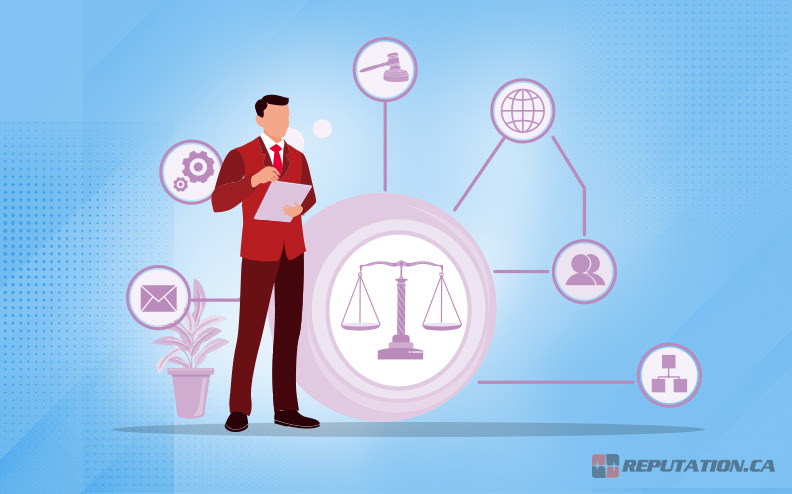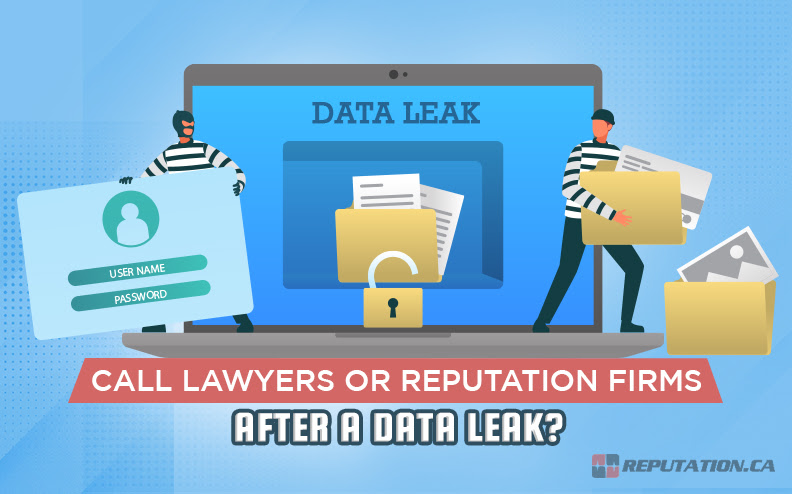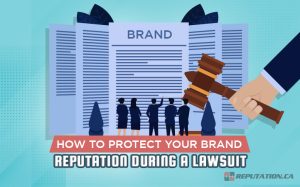Your choice between data breach lawyers and reputation management firms will depend on a few factors: what type of data got exposed, how much money you might lose, and if the breach has already hit the news. Legal counsel will mostly focus on compensation and protecting your rights under federal privacy laws, while reputation specialists work on limiting the public fallout and rebuilding your name.
Which professional you contact first affects how much money you recover and how fast you restore your reputation. You can’t let this wait because evidence-preservation deadlines and different notification laws leave you only a short window for the best outcome.
Learn how to choose who can best help you get through this crisis!
Know Your Legal Rights After Breaches
Data breaches actually come with more legal protections than most victims expect. Federal laws like HIPAA protect medical information, and FTC regulations cover consumer data across different industries. These laws have real teeth and can help victims get compensation or push businesses to fix their security problems.
Something that victims usually miss is that conversations with attorneys stay completely private under attorney-client privilege. Waiting and talking to other parties first means that the clock starts ticking the second the data walks out the door, and it can hurt your case later on.

Every state deals with breach notifications differently. Some states give businesses a full 30 days. Other states require immediate notification within just a few hours. Businesses that miss these deadlines lose their legal protections and make the victims’ cases much stronger.
A few years back, the Office of Personnel Management breach changed everything for data breach victims. Courts ruled that victims could sue even without proving immediate financial harm. Before that ruling, businesses would just shrug their shoulders and say that no money was stolen, so no harm was done. Not anymore.
Knowing these rights shapes everything that happens next. It determines if you should call a lawyer or contact a reputation management company instead. Each choice opens doors and shuts others, so the first decision matters.
How Data Breach Lawyers Help You
Hire a data breach lawyer, and they’ll start pulling together evidence about what happened to you. They’ll want your emails or letters from the company about the breach. They’ll also ask for your bank statements and credit reports so they can track down any suspicious activity from the incident. Your lawyer needs all the information to build the strongest possible case on your behalf.
Data breach lawyers usually work on a volume model, and they may take on hundreds or even thousands of similar cases at once. TikTok privacy cases perfectly illustrate how this works. Lawyers ended up representing millions of users who said the app had been collecting their personal data without asking for permission first. Each person received a pretty small settlement check, and the lawyers made their money through the large number of clients they represented.
If enough victims have been affected, your lawyer handles the coordination and keeps everyone in the group updated on how the case is moving along. You don’t have much to do except hand over your information and wait for everything to play out.

Records end up being a bigger deal than you might expect. Your lawyer helps you track down the obvious financial losses. They’ll also work on documenting the non-financial damage that you’ve experienced. Maybe you’ve been losing sleep over this whole situation, or you’ve been feeling worried and stressed out about having your personal information stolen. These emotional effects can become a part of your claim, too.
It almost always takes months for cases to work their way through the system. Your lawyer will spend time going back and forth with the company that was responsible for losing your data in the first place. They’ll keep pushing for a settlement that covers your losses and pays you fairly for the trouble and stress you’ve had to endure. Waiting is probably my least favorite part of the whole process – it drags on forever.
Why Your Business Needs Reputation Management
Legal action helps after a data breach. Yet that’s not nearly enough to fix the harm. Your reputation is the bigger issue – how customers respond when they see your company name or what they find about your business online.
Data breaches happen fairly regularly, and when one hits your company, customer information ends up in the wrong hands. Even after doing everything right from a legal standpoint and following every law in the book to a tee, your clients might still start asking if they can trust your business with their information. Sometimes the problem isn’t even connected to your company – maybe you work in a field where your personal info somehow got scattered across the internet, and it pops up each time anyone runs a search on your name.
Reputation management firms step in when what customers think about you starts threatening everything that you’ve built. These focused teams work to reshape the story that’s being told about your situation, and they’ll help you piece back together the trust that has taken a hit.

A lawyer helps you get harmful content taken down or go after damages in court. Legal action has limits, though – it can’t magically make your existing customers trust you again or convince prospective new clients that you’re worth working with, and that’s where reputation management is necessary.
These two paths work quite well together. You can handle the legal pieces of your situation while reputation specialists shape how the public sees you. Legal action protects your rights and secures compensation, while reputation management protects your image and your future earning ability. Each piece matters for anyone facing a data breach that threatens to destroy everything that they’ve worked to build.
When Your Business Needs Legal or PR
Most executives ask themselves if they should call lawyers or reputation management firms first after a data breach hits their company. Most serious breaches actually need both types of help, and which one comes first usually depends on what happened and how bad the damage is.
Data exposure type makes a big difference in the response strategy. Social Security numbers and financial records create completely different legal problems than email addresses or basic usernames do. If hackers managed to grab sensitive personal information, businesses almost definitely need lawyers immediately to help work through regulatory compliance and possible court cases down the road. Customer emails leaking online instead might actually make reputation management the first priority, so businesses can control the narrative before it spirals out of control.

Customer count in the breach matters quite a bit because different-sized breaches trigger different obligations. A data incident that hits thousands of customers creates completely different legal obligations compared to one that only hits a handful of employees. Large-scale breaches usually come with pretty tight deadlines for notifying regulators, and businesses will probably need legal advice fast if they want to avoid the extra penalties on top of all the other problems they’re already dealing with.
Another big factor that can change the game is timing, specifically, if the word about the breach has already leaked to the media or is still contained internally. News outlets that pick up the story and run headlines put businesses in damage-control mode. They’ll need experienced reputation-management experts working around the clock to get control of the media chaos while their legal team manages all the regulatory and liability matters at the same time. A breach found through internal checks that hasn’t hit the press yet actually gives organizations some valuable time on their hands. This window gives them a chance to get their ducks in a row – they can plan their response, coordinate between departments, and make sure that everyone is on the same page before any announcements go out.
Recent breach cases from the past few years show how legal and reputation strategies can work hand in hand during a crisis. Businesses like Target and Equifax both relied on teams of lawyers and PR experts to work through their respective disasters. Legal teams handled court cases and regulatory compliance matters while reputation-management firms focused on public perception and customer-communication work.
Every Hour Counts After the Breach
A data breach puts your company up against a ticking clock. Disclosure laws in different states now mean you need to alert the customers who are affected much sooner than businesses ever did before. Some states even make you send that message within only 72 hours of discovering the breach. That puts serious pressure on your legal team and your reputation team to move as fast as humanly possible.
Your first call should probably be to a lawyer who specializes in this area. They need to start preserving evidence and protecting your company’s rights from the very beginning. Waiting too long means valuable data could vanish without a trace. Employees might accidentally delete valuable emails or system logs because they don’t realize how helpful that information could be later. A skilled lawyer can issue what’s called a legal hold to stop this accidental destruction.

Meanwhile, your company’s reputation keeps slipping with every hour that passes without a response from you. News about data breaches travels at lightning speed online, and your upset customers sure won’t sit around patiently waiting for you to talk about what actually happened. Each day that passes without a word from your company will make customers even more suspicious and frustrated. Social media sites will blow up every complaint and spread it far and wide, and the reporters are always on the hunt for the next big data-breach story.
Legal processes run on a completely different timeline from your reputation crisis. Class-action cases usually drag on for years, with endless depositions, court dates, and legal back-and-forth. Your reputation crisis needs attention right now, though. Your customers want answers now, not after some settlement that lands in 2026.
This timing mismatch creates some tough challenges for businesses. Your legal team will probably want you to stay quiet while they build their defense strategy step by step. Meanwhile, your reputation management team wants you to speak openly and transparently to show strong leadership during the crisis. Balancing these competing needs is key to handling this whole situation, and it calls for tight coordination from the very second that you find the breach.
Legal Help and What It Costs You
Data breaches can hit your wallet hard. You can still get legal help even if money is tight, though. Most data-breach attorneys work on a contingency fee basis, and they’ll only get paid if you win your case or reach a settlement. This arrangement lets you bring a lawyer on board even when your finances are tapped out at the time.
Reputation management firms work very differently. They ask for thousands of dollars up front. Only after you pay do they start trying to fix your damaged reputation or clean up whatever turns up when someone searches for you online. You’re looking at money that you pay out of pocket, and there’s no real promise that their work will deliver the results you want.
Your expected compensation if you decide to move forward with legal action against the company responsible for the breach depends quite a bit on the type of personal information that was compromised. Medical records and health information breaches usually produce much bigger settlement amounts than a basic email address leak. That difference makes sense because medical data is far more sensitive and much harder to replace or change.

One important detail to know is that victims who hire experienced lawyers for their data-breach cases are about twice as likely to receive any compensation compared to those who try to take care of everything on their own. This difference gets pretty big, especially if you’re already stressed out from recovering after a breach.
Most businesses will give you free credit monitoring services after a big breach. They’ll usually throw in identity-theft protection as part of the response package. These services can be quite helpful and make you feel a bit better about the situation. They’re not the same as monetary compensation for all the problems and inconvenience you’ve gone through, though. A legal settlement can cover concrete damages like the time that you’ve spent on the fallout from the breach and any direct financial losses you suffered.
Taking legal action or paying for reputation management differs based on your own circumstances and what you can realistically afford. I see clients wrestle with this decision all the time if they’re already stretched thin financially from the breach itself.
Monitor and Manage Your Reputation
Document everything that happened during this breach – that’s your smartest move. Screenshots, emails, and text messages – hang on to everything and keep solid records of how your information got compromised in the first place. These documents will be really helpful, no matter which experts you work with later. Time is already ticking on this one, so calling the right experts within the next few days (not weeks) really matters for what options you’ll have.
It’s very overwhelming when this happens to you, and it makes sense. Thousands of other victims have been in the same situation and worked their way through it just fine. You might want to bring in lawyers to get compensated, or you might need reputation specialists to help fix your public image, or maybe you’ll need all of these. You just can’t sit around and hope that this whole mess will magically disappear on its own. You should get compensated for everything you’ve been put through, and you should get your reputation back to where it was before this whole thing started.

Your online reputation matters a ton when would-be employers, clients, or even dates are just one Google search away from making up their minds about you. At Reputation.ca, we’ve been helping Canadians with these exact problems for years, and we’ve handled just about every situation that you can imagine. Maybe you’re facing some unfair reviews that just won’t budge, or maybe your social media presence needs a full overhaul. Sometimes you need full-scale crisis management when everything seems to be spiraling out of control. Cancel culture can be downright ruthless. We also help plenty of clients who just want to build a strong online reputation from scratch. No two cases are exactly alike, so we always begin with an honest conversation about your situation and what you want to accomplish.
Give Reputation.ca a call, and we’ll help you build a plan and execute it with precision!







